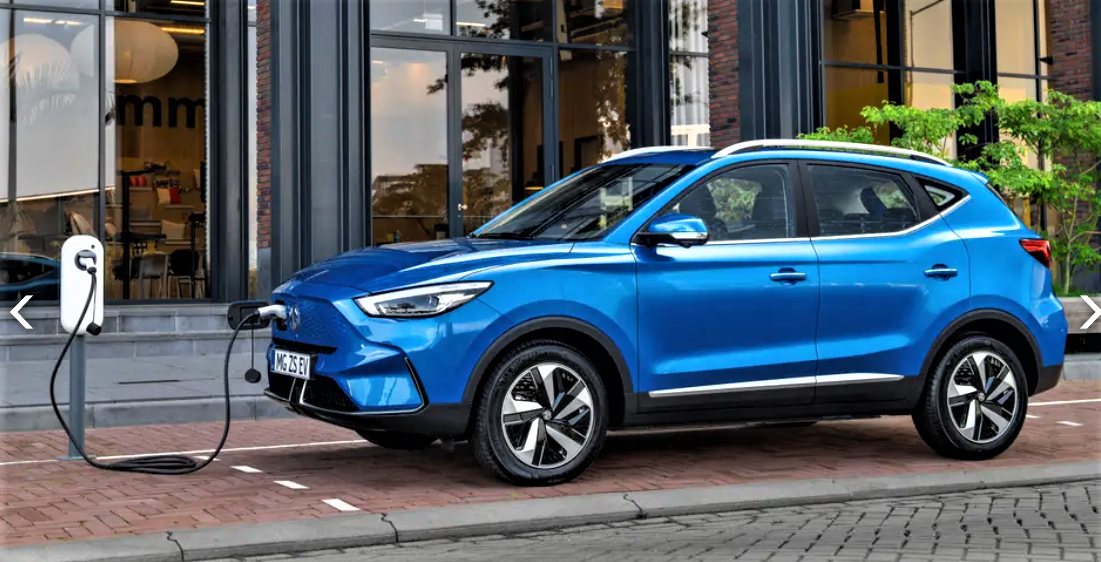OTTAWA – While all eyes are on headline investments into conversions of major auto plants for electrified-vehicle production, a key sign that this market is maturing is emerging: the growth of used-vehicle sales in the EV segment.
Data from U.S.-based industry consultant Cox Automotive says American used-EV retail sales via licensed dealerships increased 32% year-on-year to 42,753 units in Q1 2023. It added that in Q1, the average used-EV retail listing price in the U.S. was $43,400, down 4% from Q1 2022, and significantly less than the average new-EV price of $59,000.
These lower used-EV prices may fall further as new-EV automakers, such as Tesla, reduce their prices, says Cox, which provides valuations for dealers: “Having more used EVs in the market is a key driver of the volume gains, and product availability will rapidly increase going forward.”
Mark Schirmer, Cox Automotive’s corporate communications director, tells Wards: “We are seeing increases of used EVs at both the retail and wholesale level, and more consumer interest as well. Still, EVs only accounted for about 1% of transactions. We do expect that to grow, but these are early days indeed.”
On a Q1 2023 Cox Automotive “Manheim Used Vehicle Value Index Call” staged last month, Schirmer highlighted how the used-EV market was taking off in the U.S., promoted by expanding inventories as new-EV sales grow rapidly, especially with the availability of Inflation Reduction Act incentives.
Cox data indicated new-EV sales in the U.S. during Q1 2023 were 6.7% of the total market at 240,000 vehicles, up 5% year-on-year. Prices also fell, with the EV premium price compared to ICE autos of a similar type being 23% in the quarter, down from 37% in Q4 2022.
“The used market is going along with the new-EV market, albeit with a lag,” Schirmer says, adding that used-EV sales in Q1 were now 1% of all U.S. used-vehicle retail transactions – “an important milestone.” Used-EV sales were given an initial boost by high fuel prices in Q1 2022 and have now started rising again: “We expect greater sales of used EVs as the trade cycle increases the supply...over the next few years.”
One important sign of this was that in Q1 2023, there were nearly 20,000 instant cash offers for EVs via the Kelley Blue Book platform, which is oriented toward used sales, “an increase of 144% over the prior year and well above increases we’ve seen in the past three years.”
The same trend can be seen in Britain, where the country’s auto industry body, the Society of Motor Manufacturers and Traders (SMMT), found that U.K. used-EV sales were the most prolific ever in 2022 – at 71,071 units, up 37.5% year-on-year, boosting their overall market share to 1%, from 0.7% in 2021. “Robust demand for other alternatively fuelled vehicles continued, too, with sales of hybrid electric vehicles (HEVs) rising 8.6% and plug-in hybrid electric vehicle (PHEVs) transactions up 3.6%,” said the SMMT.

MG ZS, owned by Chinese automaker SAIC, on U.K. market since 2019.
But some used-EV markets remain immature. Canada is a case in point. Andrew King, managing partner, DesRosiers Automotive Consultants, says: “Right now the market is very small. There have been less than 300,000 BEVs sold in Canada since the product was introduced – and most of these have come in the past three years. The number of these vehicles in the used-vehicle market here is tiny.”
The reason is a continuing weak supply of new EVs, stunting the used market; problems with warranty coverage on used EV batteries; the impact of government rebates for new-vehicle sales on used-EV values; and varying provincial policies on EVs, hindering an integrated national market. King says it is “hard to form definitive conclusions” about how the used-EV market will develop in Canada.
In Europe, March 2023 data from Denmark-based intelligence and analytics solutions company Indicata showed “used-BEV prices have tumbled” but failed “to ignite sales” in 13 key European markets, namely Austria, Belgium, Denmark, France, Germany, Italy, the Netherlands, Poland, Portugal, Spain, Sweden, Turkey and the UK. “For most of 2022, prices continued to rise” but now are falling, on average by 9.7% in the four months to March, says Indicata.
In March, online business-to-consumer used-BEV sales in these countries increased 10.9% month-on-month to 2.85% of overall used sales and used hybrids’ market share increased to 11.01% of the overall used-vehicle market.
European Union statistical agency Eurostat sent data to Wards indicating the EU was importing and trading significant amounts of used EVs. In 2022, €1.2 billion’s ($1.3 billion) worth of used EVs were traded between the 27 member states, with €58 million ($63 million) imported into the bloc. That was almost double the amounts registered in 2021 (€554 million [$610 million] and €31.7 million [$34.9 million], respectively).
China does not specify the sales volume of used EVs as the sector is still small, but sales have been growing, says Tiantian Paiche, a major online used car dealer based in Shanghai. Used-EV sales volumes in 2022, although hit by COVID-19-related movement restrictions, were still up 25.3% year-on-year, says the trader, while in 2021, sales volumes were up 65% from 2020. The dealer points out in a report that one major reason for the growth was that in 2022, China lifted a restriction preventing used EVs being sold outside their initial registration area. And more used EV sales will follow: “Many more deals could be made without this ban across the country,” says a Tiantian Paiche note.
In general, Chinese used-EV buyers prefer small EVs less than 2 years old and priced between RMB30,000 and RMB50,000 ($4,300 and $7,200), according to the China Automobile Dealers Assn.
– with Andreia Nogueira in Lisbon and Wang Fangqing in Shanghai





